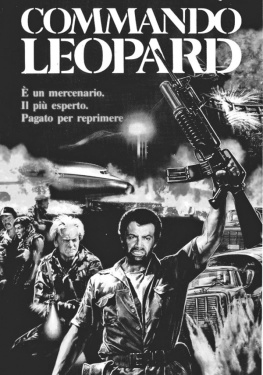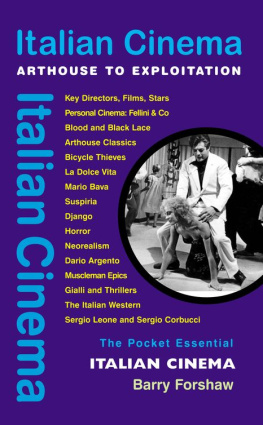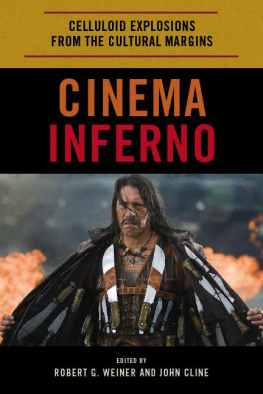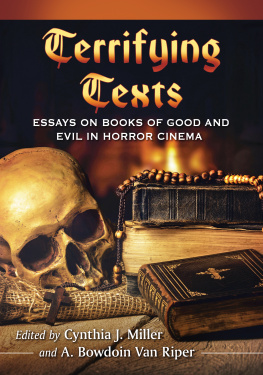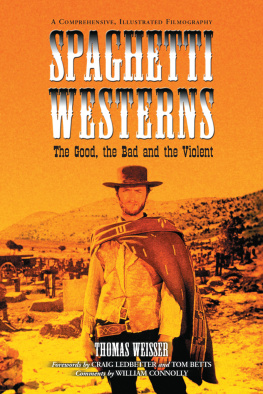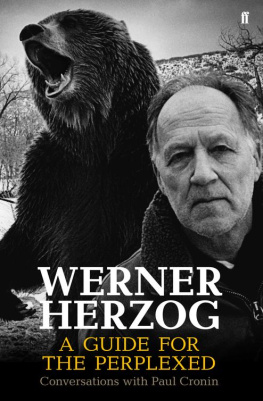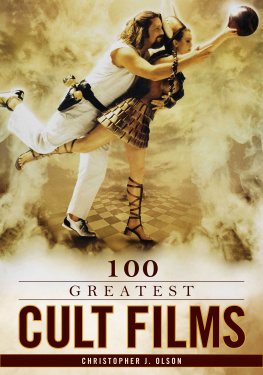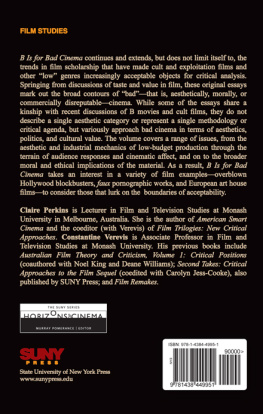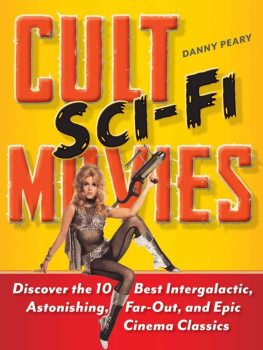
ALSO EDITED BY MATTHEW EDWARDS
The Atomic Bomb in Japanese Cinema: Critical Essays (McFarland, 2015)
Film Out of Bounds: Essays and Interviews on Non-Mainstream Cinema Worldwide (McFarland, 2007)
Klaus Kinski, Beast of Cinema
Critical Essays and Fellow Filmmaker Interviews
Edited by MATTHEW EDWARDS

McFarland & Company, Inc., Publishers
Jefferson, North Carolina
LIBRARY OF CONGRESS CATALOGUING DATA ARE AVAILABLE
BRITISH LIBRARY CATALOGUING DATA ARE AVAILABLE
e-ISBN: 978-1-4766-2508-9
2016 Matthew Edwards. All rights reserved
No part of this book may be reproduced or transmitted in any form or by any means, electronic or mechanical, including photocopying or recording, or by any information storage and retrieval system, without permission in writing from the publisher.
Front cover: Klaus Kinski in Cobra Verde, 1987 Hemispheric Pictures LLC/Photofest; back cover: artwork from And God Said to Cain movie poster, 1970
McFarland & Company, Inc., Publishers
Box 611, Jefferson, North Carolina 28640
www.mcfarlandpub.com
To my good friend
Patrick Phileas Fogg Prescott,
my unofficial book agent.
Thanks a million for continuing to bully people
into buying my books and for listening to me
drone on about my book-writing exploits when
drinking beer and West Country scrumpy cider.
Acknowledgments
This book would not have been possible without the help of my family and friends and the contributors to this anthology. I would like to thank Joana Moura, David Williams, Roberto Cavallini, Fernando Gabriel Pagnoni Berns, Tonya Howe, Benjamin van Loon, Tyson Wils, Padraic Killeen, Patricia Castello Branco and Axel Andersson for their excellent essays and contributions. I would also like to express my gratitude and thanks to my brother Mark Edwards for his reviews of cult Kinski films and for offering to contribute to this collection. A big thank-you also to Dan Taylor of the Exploitation Retrospect blog for offering to write a number of reviews of some of Kinskis more obscure exploitation films, which I hope readers will seek out. A huge thank-you also goes to Peter Berling, William DeSeta, Barry Hickey, Flo Lawrence, Harry Mathias, David Paulsen and David Wickes for being interviewed for this book and for sharing their experiences of working with Klaus Kinski. A big thank-you also goes to Peter Berlings agent, Claudia von Hornstein, for all her help in setting up this interview.
Thank you also to my Mum and Dad and my brothers Paul and Daniel for their support during the work of the manuscript and with my writing. Thank you to Doug and Rosemary for listening to me witter on about Kinski and for their support. Special thanks also to my nieces Lily, Poppy, Naomi and Eliza and to Mandy and Kate. Thank you also to Stuart and Emma Pearce, Patrick Prescott and Darren and Beth Harris for listening to me talk endlessly about Kinski.
Last, but not least, a huge thank you to my wife, Johanna, for her love and support during the writing of this book and for allowing me to watch many Kinski films. Without her the book would not have been completed. For despite her reservations about the wisdom of continuing with the projectin light of the allegations against Kinski, during work on the manuscriptshe continued to support me till the end. I thank her of putting up with all of this and for marrying me!
I was not excellent. I was not extraordinary. I was monumental. I was epochal.
Klaus Kinskis response to a well-intentioned critic who praised his work, as quoted by Werner Herzog in My Best Fiend
Yeah, Ive got violence in me, but no negative violence. My violence is the violence of the free man who refuses to knuckle under. Creation is violent. Life is violent. Birth is a violent process. Tempests and earthquakes are violent movements of nature. My violence is the violence of life. It is not violence against nature, like the violence of the state, which sends your kids to the slaughterhouse, deadens your minds, and drives out of your souls!
Klaus Kinski in Kinski Uncut: The Autobiography of Klaus Kinski, p. 2
Herzog is a miserable, hateful, malevolent, avaricious, money-hungry, nasty, sadistic, treacherous, cowardly creep.
Kinski on Werner Herzog
Fuck you.
Telegram sent by Klaus Kinski to Federico Fellini
Preface
The genesis of this book started in March 2013 while rewatching Kinskis mesmerizing and sublime performance in Werner Herzogs groundbreaking Aguirre, the Wrath of God (1972). I had been a huge admirer of Kinski and his body of work since my first exposure to his iconic screen presence in Werner Herzogs Fitzcarraldo (1982). While researching Kinskis career and lengthy filmography, I was surprised to learn that there had been no critical study in English dedicated to the work of this legendary actor. For an actor of such magnitude and with such a cult following in the West, such an absence seemed astonishing. While a plethora of essays have been written about Kinskis explosive collaborations with Herzog, it seemed peculiar that the scholarly community had neglected to cast its critical eye over Kinskis more than 130 films. Kinski was a regular of the spaghetti western and Eurotrash genres, and it was evident that he was an ideal candidate for exploration, especially with his reputation for being notoriously difficult and a sexual predator on set. Kinskis brilliance of illuminating even the trashiest of films marked him as an incredible talent worthy of further exploration.
From a scholarly perspective, it seemed fitting to put together a collection that explored Kinskis unique acting stylethe Kinski spiral, which was honed in his collaborations with Herzogand his performances in diverse genres that would mark him as one of the gifted actors of his generation. In truth, it can be argued that a large swath of Kinskis filmography is littered with derivative and formulaic films with seemingly little artistic or cinematic value, yet Kinskis mere presence in these films have ensured that they have endured longer than anyone could have originally conceived during the making of the films. It is Kinskis appearance in such films that have elevated them from obscurity or as a cinematic footnote in their respective genres, and in some cases giving them cult status. Kinskis usually wild performances made these films fascinating to watch. Even Kinski die-hards are in agreement that when Kinski appears on screen he would invariably illuminate proceedings in even the worst of the films in his back catalog. While in truth his acting became uneven and listless during the final decade of his career, one can accuse Kinski of listlessness during his heyday during the 1960s and 1970s, too.
Yet we should not demean Kinskis filmography, for though he made erratic choices with parts and films, he is rightly recognized as a pioneering actor of his generation, receiving plaudits critically and from his cinematic peers. It is no surprise that cinematic luminaries such as Spielberg, Fellini and Kurosawa were keen to work with Kinski, though he turned them all down. Kinskis repertoire could range from the deeply emotive to a violent, wild, seething madness. He was able to transmit and transcend his characters feelings with consummate ease, achieving them with the subtlest of changes with his lips or eyes.
Next page
